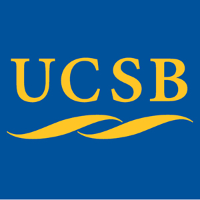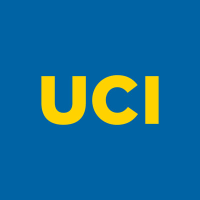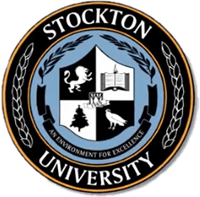What do they do?
Study human society and social behavior by examining the groups and social institutions that people form, as well as various social, religious, political, and business organizations. May study the behavior and interaction of groups, trace their origin and growth, and analyze the influence of group activities on individual members.
Also known as:
Demographer, Evaluation Specialist, Medical Sociologist, Policy Analyst, Research Associate, Research Coordinator, Research Scientist, Research Specialist, Social Scientist, Sociologist
-
0%
Change
Ranks #15 in job growth rate10Job Openings
Ranks #10 in net job growth
-
University of California-Los Angeles
Los Angeles, CA
-
University of California-Santa Barbara
Santa Barbara, CA
-
University of California-Irvine
Irvine, CA
-
University of Maryland-College Park
College Park, MD
-
Stockton University
Galloway, NJ
Looking for colleges that offer a specific major? Use the College Match Tool to find your best-matched schools and discover your estimated Net Price!
- Doctorate or Professional Degree (16%)
- Master's degree (42%)
- Bachelor's degree (34%)
- Associate's degree (4%)
- Some college, no degree (3%)
- High school diploma equivalent (1%)
- Less than high school diploma (1%)
Most Popular Majors that prepare Sociologists
-
#1
-
Degrees Granted
8,726
-
Female Students
5,472
-
Male Students
3,254
-
Median Starting Salary
$39,500
-
-
#2
-
Degrees Granted
869
-
Female Students
517
-
Male Students
352
-
Median Starting Salary
$44,500
-
-
#3
-
Degrees Granted
468
-
Female Students
371
-
Male Students
97
-
Median Starting Salary
$44,181
-
-
#4
-
Degrees Granted
3
-
Female Students
2
-
Male Students
1
-
Median Starting Salary
$39,700
-
People in this career often have these skills:
- Active Listening - Giving full attention to what other people are saying, taking time to understand the points being made, asking questions as appropriate, and not interrupting at inappropriate times.
- Speaking - Talking to others to convey information effectively.
- Reading Comprehension - Understanding written sentences and paragraphs in work-related documents.
- Writing - Communicating effectively in writing as appropriate for the needs of the audience.
- Critical Thinking - Using logic and reasoning to identify the strengths and weaknesses of alternative solutions, conclusions, or approaches to problems.
- Active Learning - Understanding the implications of new information for both current and future problem-solving and decision-making.
- Learning Strategies - Selecting and using training/instructional methods and procedures appropriate for the situation when learning or teaching new things.
- Social Perceptiveness - Being aware of others' reactions and understanding why they react as they do.
- Instructing - Teaching others how to do something.
- Complex Problem Solving - Identifying complex problems and reviewing related information to develop and evaluate options and implement solutions.
- Judgment and Decision Making - Considering the relative costs and benefits of potential actions to choose the most appropriate one.
- Monitoring - Monitoring/Assessing performance of yourself, other individuals, or organizations to make improvements or take corrective action.
People in this career often know a lot about:
- Sociology and Anthropology - Knowledge of group behavior and dynamics, societal trends and influences, human migrations, ethnicity, cultures, and their history and origins.
- English Language - Knowledge of the structure and content of the English language including the meaning and spelling of words, rules of composition, and grammar.
- Education and Training - Knowledge of principles and methods for curriculum and training design, teaching and instruction for individuals and groups, and the measurement of training effects.
- Mathematics - Knowledge of arithmetic, algebra, geometry, calculus, statistics, and their applications.
- History and Archeology - Knowledge of historical events and their causes, indicators, and effects on civilizations and cultures.
- Computers and Electronics - Knowledge of circuit boards, processors, chips, electronic equipment, and computer hardware and software, including applications and programming.
People in this career often have talent in:
- Oral Comprehension - The ability to listen to and understand information and ideas presented through spoken words and sentences.
- Oral Expression - The ability to communicate information and ideas in speaking so others will understand.
- Written Comprehension - The ability to read and understand information and ideas presented in writing.
- Written Expression - The ability to communicate information and ideas in writing so others will understand.
- Inductive Reasoning - The ability to combine pieces of information to form general rules or conclusions (includes finding a relationship among seemingly unrelated events).
- Deductive Reasoning - The ability to apply general rules to specific problems to produce answers that make sense.
- Speech Clarity - The ability to speak clearly so others can understand you.
- Near Vision - The ability to see details at close range (within a few feet of the observer).
- Speech Recognition - The ability to identify and understand the speech of another person.
- Problem Sensitivity - The ability to tell when something is wrong or is likely to go wrong. It does not involve solving the problem, only recognizing that there is a problem.
- Category Flexibility - The ability to generate or use different sets of rules for combining or grouping things in different ways.
People in this career often do these activities:
- Conduct research on social issues.
- Interpret research or operational data.
- Prepare scientific or technical reports or presentations.
- Develop methods of social or economic research.
- Collect information from people through observation, interviews, or surveys.
- Instruct college students in social sciences or humanities disciplines.
- Plan social sciences research.
- Present research results to others.
- Present information to the public.
- Inform viewers, listeners, or audiences.
- Design psychological or educational treatment procedures or programs.
- Advise others on matters of public policy.
- Supervise scientific or technical personnel.
- Coordinate cross-disciplinary research programs.
- Write grant proposals.
- Prepare proposals or grant applications to obtain project funding.
This page includes data from:

 Occupation statistics: USDOL U.S. Bureau of Labor Statistics Occupational Employment Statistics
Occupation statistics: USDOL U.S. Bureau of Labor Statistics Occupational Employment Statistics
 Videos: CareerOneStop, USDOL/ETA and the Minnesota Department of Employment & Economic Development
Videos: CareerOneStop, USDOL/ETA and the Minnesota Department of Employment & Economic Development









